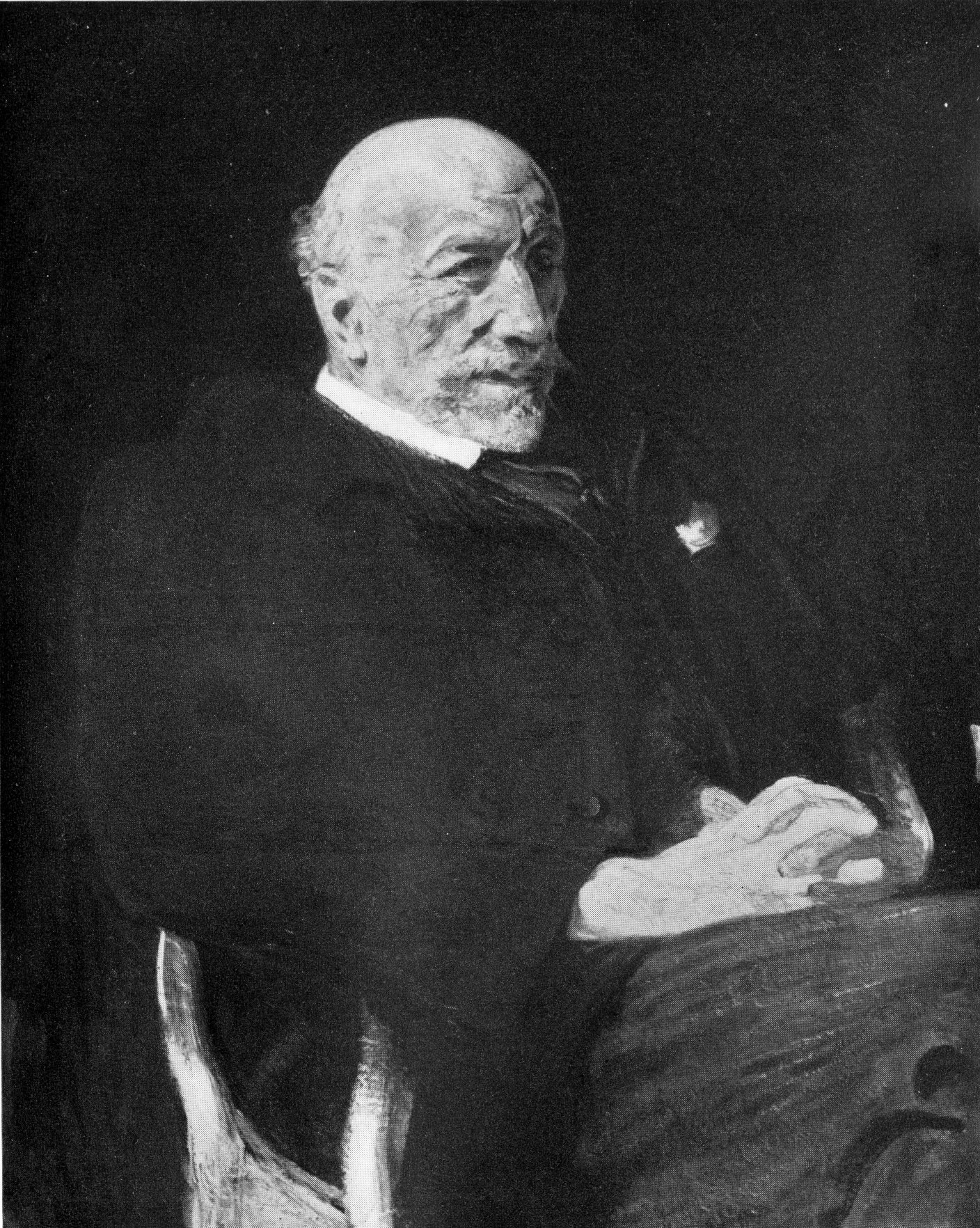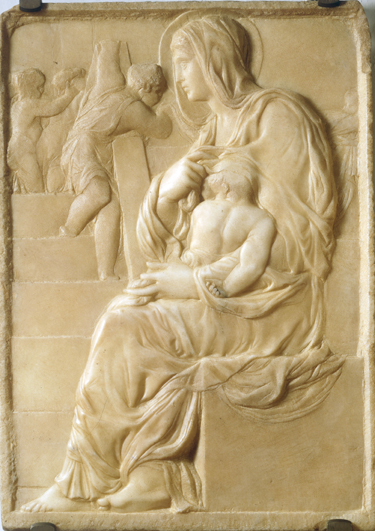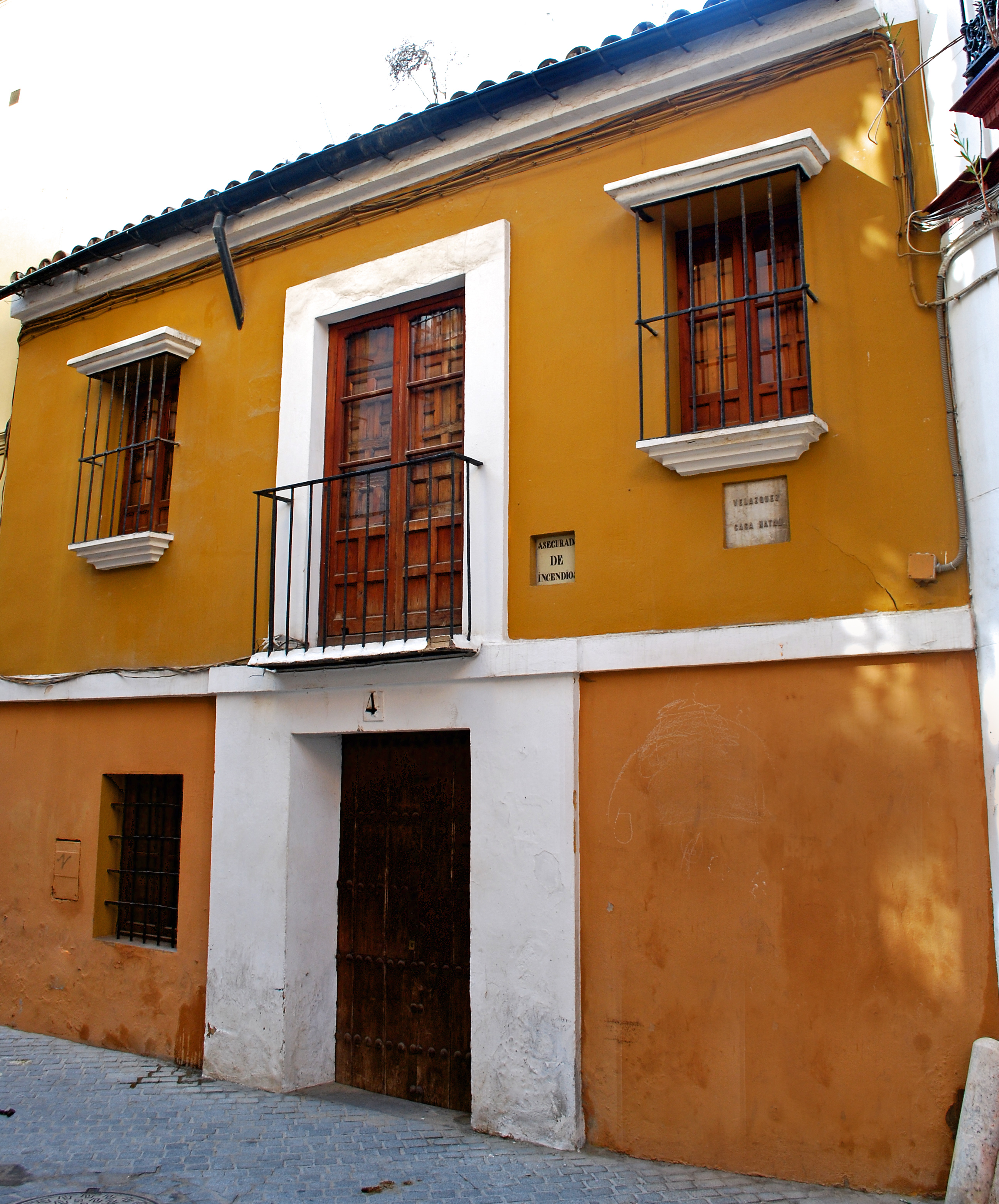|
Carl Justi
Carl Justi (2 August 1832, in Marburg – 9 December 1912, in Bonn) was a German art historian, who practised a biographical approach to art history. Professor of art history at the University of Bonn, he wrote three major critical biographies: of Johann Joachim Winckelmann, of Diego Velázquez and of Michelangelo. Life Born in Marburg, Justi studied theology at the University of Berlin before transferring to philosophy. He graduated in 1859 with a thesis 'Über die ästhetischen Elemente in der platonischen Philosophie'. Justi established his reputation with a three-volume work on Johann Joachim Winckelmann. He succeeded Anton Springer in the chair of art history at the University of Bonn, holding the post from 1872 until 1901. Works * ''Die ästhetischen Elemente in der platonischen Philosophie: ein historisch-philosophischer Versuch'', Marburg: N. G. Elwert, 1860 * ''Winckelmann: sein Leben, Seine Werke und sein Zeitgenossen''. 3 vols. Leipzig: F. C. W. Vogel, 1866–72. ... [...More Info...] [...Related Items...] OR: [Wikipedia] [Google] [Baidu] |
Carl Justi
Carl Justi (2 August 1832, in Marburg – 9 December 1912, in Bonn) was a German art historian, who practised a biographical approach to art history. Professor of art history at the University of Bonn, he wrote three major critical biographies: of Johann Joachim Winckelmann, of Diego Velázquez and of Michelangelo. Life Born in Marburg, Justi studied theology at the University of Berlin before transferring to philosophy. He graduated in 1859 with a thesis 'Über die ästhetischen Elemente in der platonischen Philosophie'. Justi established his reputation with a three-volume work on Johann Joachim Winckelmann. He succeeded Anton Springer in the chair of art history at the University of Bonn, holding the post from 1872 until 1901. Works * ''Die ästhetischen Elemente in der platonischen Philosophie: ein historisch-philosophischer Versuch'', Marburg: N. G. Elwert, 1860 * ''Winckelmann: sein Leben, Seine Werke und sein Zeitgenossen''. 3 vols. Leipzig: F. C. W. Vogel, 1866–72. ... [...More Info...] [...Related Items...] OR: [Wikipedia] [Google] [Baidu] |
Anton Springer
Anton Heinrich Springer (13 July 182531 May 1891) was a German art historian and writer. Early life Springer was born in Prague, where he studied philosophy and history at Charles University, earning a Ph.D. Taking an interest in art, he made several educational journeys, travelling to Munich, Dresden and Berlin, and spent some months in Italy. After his Ph.D. he addressed himself to art history. He wrote a second Ph.D. thesis on Hegel's theory of history in Tübingen, where he also was involved in the political activities of the Revolution of 1848. Work He settled at Tübingen, but in 1848 returned to Prague and began to lecture at the university on the history of the revolutionary epoch. The liberal tone of these lectures brought him into disfavour with the ruling authorities, and in 1849 he left Bohemia and passed some time in England, France and the Netherlands. In 1852 he settled at Bonn, where he was lecturer and professor (from 1860) for art history. In 1872 he went to the ... [...More Info...] [...Related Items...] OR: [Wikipedia] [Google] [Baidu] |
German Art Historians
German(s) may refer to: * Germany (of or related to) ** Germania (historical use) * Germans, citizens of Germany, people of German ancestry, or native speakers of the German language ** For citizens of Germany, see also German nationality law **Germanic peoples (Roman times) * German language **any of the Germanic languages * German cuisine, traditional foods of Germany People * German (given name) * German (surname) * Germán, a Spanish name Places * German (parish), Isle of Man * German, Albania, or Gërmej * German, Bulgaria * German, Iran * German, North Macedonia * German, New York, U.S. * Agios Germanos, Greece Other uses * German (mythology), a South Slavic mythological being * Germans (band), a Canadian rock band * "German" (song), a 2019 song by No Money Enterprise * ''The German'', a 2008 short film * "The Germans", an episode of ''Fawlty Towers'' * ''The German'', a nickname for Congolese rebel André Kisase Ngandu See also * Germanic (other) * ... [...More Info...] [...Related Items...] OR: [Wikipedia] [Google] [Baidu] |
University Of Bonn Faculty
A university () is an institution of higher (or tertiary) education and research which awards academic degrees in several academic disciplines. Universities typically offer both undergraduate and postgraduate programs. In the United States, the designation is reserved for colleges that have a graduate school. The word ''university'' is derived from the Latin ''universitas magistrorum et scholarium'', which roughly means "community of teachers and scholars". The first universities were created in Europe by Catholic Church monks. The University of Bologna (''Università di Bologna''), founded in 1088, is the first university in the sense of: *Being a high degree-awarding institute. *Having independence from the ecclesiastic schools, although conducted by both clergy and non-clergy. *Using the word ''universitas'' (which was coined at its foundation). *Issuing secular and non-secular degrees: grammar, rhetoric, logic, theology, canon law, notarial law.Hunt Janin: "The university ... [...More Info...] [...Related Items...] OR: [Wikipedia] [Google] [Baidu] |
People From Marburg
A person ( : people) is a being that has certain capacities or attributes such as reason, morality, consciousness or self-consciousness, and being a part of a culturally established form of social relations such as kinship, ownership of property, or legal responsibility. The defining features of personhood and, consequently, what makes a person count as a person, differ widely among cultures and contexts. In addition to the question of personhood, of what makes a being count as a person to begin with, there are further questions about personal identity and self: both about what makes any particular person that particular person instead of another, and about what makes a person at one time the same person as they were or will be at another time despite any intervening changes. The plural form "people" is often used to refer to an entire nation or ethnic group (as in "a people"), and this was the original meaning of the word; it subsequently acquired its use as a plural form of per ... [...More Info...] [...Related Items...] OR: [Wikipedia] [Google] [Baidu] |
1912 Deaths
Year 191 ( CXCI) was a common year starting on Friday (link will display the full calendar) of the Julian calendar. At the time, it was known as the Year of the Consulship of Apronianus and Bradua (or, less frequently, year 944 ''Ab urbe condita''). The denomination 191 for this year has been used since the early medieval period, when the Anno Domini calendar era became the prevalent method in Europe for naming years. Events By place Parthia * King Vologases IV of Parthia dies after a 44-year reign, and is succeeded by his son Vologases V. China * A coalition of Chinese warlords from the east of Hangu Pass launches a punitive campaign against the warlord Dong Zhuo, who seized control of the central government in 189, and held the figurehead Emperor Xian hostage. After suffering some defeats against the coalition forces, Dong Zhuo forcefully relocates the imperial capital from Luoyang to Chang'an. Before leaving, Dong Zhuo orders his troops to loot the tombs of the H ... [...More Info...] [...Related Items...] OR: [Wikipedia] [Google] [Baidu] |
1832 Births
Year 183 ( CLXXXIII) was a common year starting on Tuesday (link will display the full calendar) of the Julian calendar. At the time, it was known as the Year of the Consulship of Aurelius and Victorinus (or, less frequently, year 936 ''Ab urbe condita''). The denomination 183 for this year has been used since the early medieval period, when the Anno Domini calendar era became the prevalent method in Europe for naming years. Events By place Roman Empire * An assassination attempt on Emperor Commodus by members of the Senate fails. Births * January 26 – Lady Zhen, wife of the Cao Wei state Emperor Cao Pi (d. 221) * Hu Zong, Chinese general, official and poet of the Eastern Wu state (d. 242) * Liu Zan (Zhengming), Chinese general of the Eastern Wu state (d. 255) * Lu Xun Zhou Shuren (25 September 1881 – 19 October 1936), better known by his pen name Lu Xun (or Lu Sun; ; Wade–Giles: Lu Hsün), was a Chinese writer, essayist, poet, and literary criti ... [...More Info...] [...Related Items...] OR: [Wikipedia] [Google] [Baidu] |
English Language
English is a West Germanic language of the Indo-European language family, with its earliest forms spoken by the inhabitants of early medieval England. It is named after the Angles, one of the ancient Germanic peoples that migrated to the island of Great Britain. Existing on a dialect continuum with Scots, and then closest related to the Low Saxon and Frisian languages, English is genealogically West Germanic. However, its vocabulary is also distinctively influenced by dialects of France (about 29% of Modern English words) and Latin (also about 29%), plus some grammar and a small amount of core vocabulary influenced by Old Norse (a North Germanic language). Speakers of English are called Anglophones. The earliest forms of English, collectively known as Old English, evolved from a group of West Germanic (Ingvaeonic) dialects brought to Great Britain by Anglo-Saxon settlers in the 5th century and further mutated by Norse-speaking Viking settlers starting in the 8th and 9th ... [...More Info...] [...Related Items...] OR: [Wikipedia] [Google] [Baidu] |
University Of Berlin
Humboldt-Universität zu Berlin (german: Humboldt-Universität zu Berlin, abbreviated HU Berlin) is a German public research university in the central borough of Mitte in Berlin. It was established by Frederick William III on the initiative of Wilhelm von Humboldt, Johann Gottlieb Fichte and Friedrich Ernst Daniel Schleiermacher as the University of Berlin () in 1809, and opened in 1810, making it the oldest of Berlin's four universities. From 1828 until its closure in 1945, it was named Friedrich Wilhelm University (german: Friedrich-Wilhelms-Universität). During the Cold War, the university found itself in East Berlin and was ''de facto'' split in two when the Free University of Berlin opened in West Berlin. The university received its current name in honour of Alexander and Wilhelm von Humboldt in 1949. The university is divided into nine faculties including its medical school shared with the Freie Universität Berlin. The university has a student enrollment of around ... [...More Info...] [...Related Items...] OR: [Wikipedia] [Google] [Baidu] |
Marburg
Marburg ( or ) is a university town in the German federal state (''Bundesland'') of Hesse, capital of the Marburg-Biedenkopf district (''Landkreis''). The town area spreads along the valley of the river Lahn and has a population of approximately 76,000. Having been awarded town privileges in 1222, Marburg served as capital of the landgraviate of Hessen-Marburg during periods of the fifteenth to seventeenth centuries. The University of Marburg was founded in 1527 and dominates the public life in the town to this day. Marburg is a historic centre of the pharmaceutical industry in Germany, and there is a plant in the town (by BioNTech) to produce vaccines to tackle Covid-19. History Founding and early history Like many settlements, Marburg developed at the crossroads of two important early medieval highways: the trade route linking Cologne and Prague and the trade route from the North Sea to the Alps and on to Italy, the former crossing the river Lahn here. A first mention o ... [...More Info...] [...Related Items...] OR: [Wikipedia] [Google] [Baidu] |
Michelangelo
Michelangelo di Lodovico Buonarroti Simoni (; 6 March 1475 – 18 February 1564), known as Michelangelo (), was an Italian sculptor, painter, architect, and poet of the High Renaissance. Born in the Republic of Florence, his work was inspired by models from classical antiquity and had a lasting influence on Western art. Michelangelo's creative abilities and mastery in a range of artistic arenas define him as an archetypal Renaissance man, along with his rival and elder contemporary, Leonardo da Vinci. Given the sheer volume of surviving correspondence, sketches, and reminiscences, Michelangelo is one of the best-documented artists of the 16th century. He was lauded by contemporary biographers as the most accomplished artist of his era. Michelangelo achieved fame early; two of his best-known works, the ''Pietà'' and ''David'', were sculpted before the age of thirty. Although he did not consider himself a painter, Michelangelo created two of the most influential frescoes i ... [...More Info...] [...Related Items...] OR: [Wikipedia] [Google] [Baidu] |
Diego Velázquez
Diego Rodríguez de Silva y Velázquez (baptized June 6, 1599August 6, 1660) was a Spanish painter, the leading artist in the court of King Philip IV of Spain and Portugal, and of the Spanish Golden Age. He was an individualistic artist of the Baroque period (c.1600–1750). He began to paint in a precise tenebrist style, later developing a freer manner characterized by bold brushwork. In addition to numerous renditions of scenes of historical and cultural significance, he painted scores of portraits of the Spanish royal family and commoners, culminating in his masterpiece ''Las Meninas'' (1656). Velázquez's paintings became a model for 19th-century realist and impressionist painters. In the 20th century, artists such as Pablo Picasso, Salvador Dalí, and Francis Bacon paid tribute to Velázquez by re-interpreting some of his most iconic images. Most of his work entered the Spanish royal collection, and by far the best collection is in the Museo del Prado in Madrid, thoug ... [...More Info...] [...Related Items...] OR: [Wikipedia] [Google] [Baidu] |

_1938.jpg)



